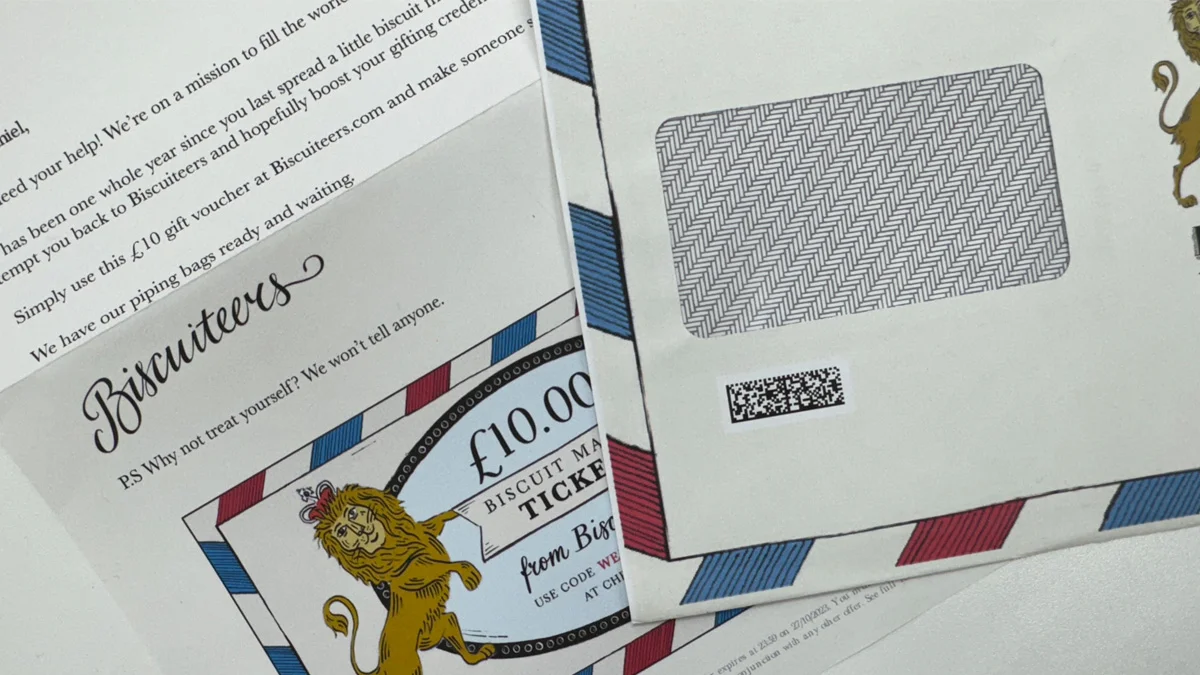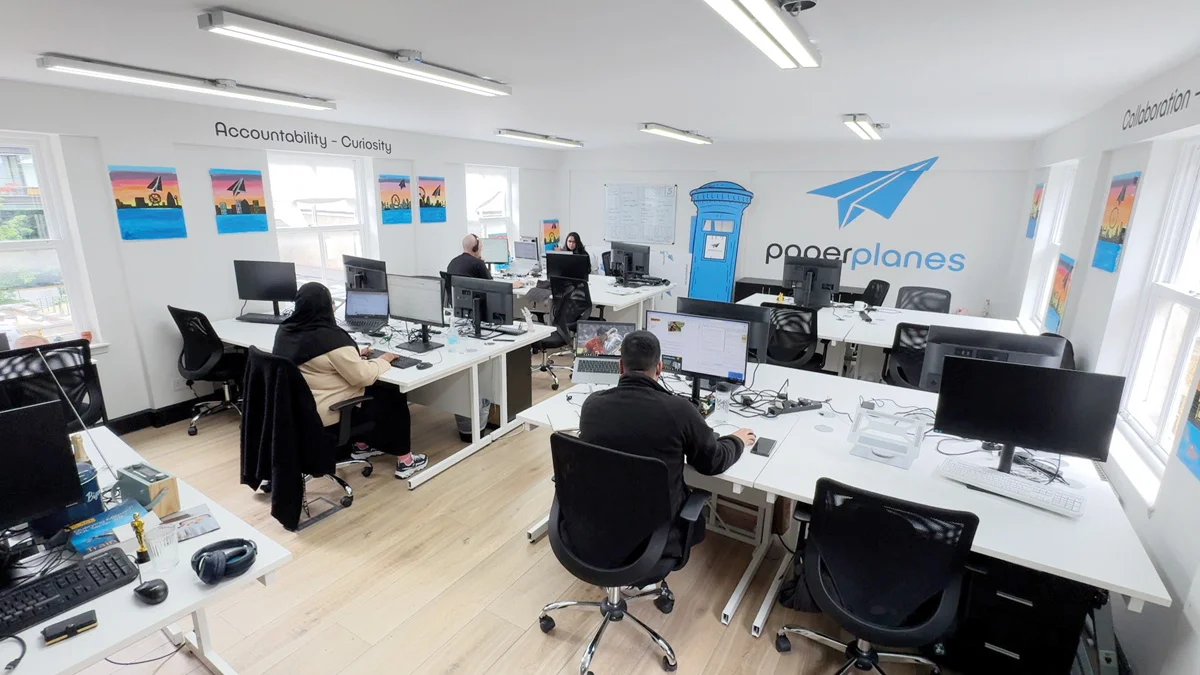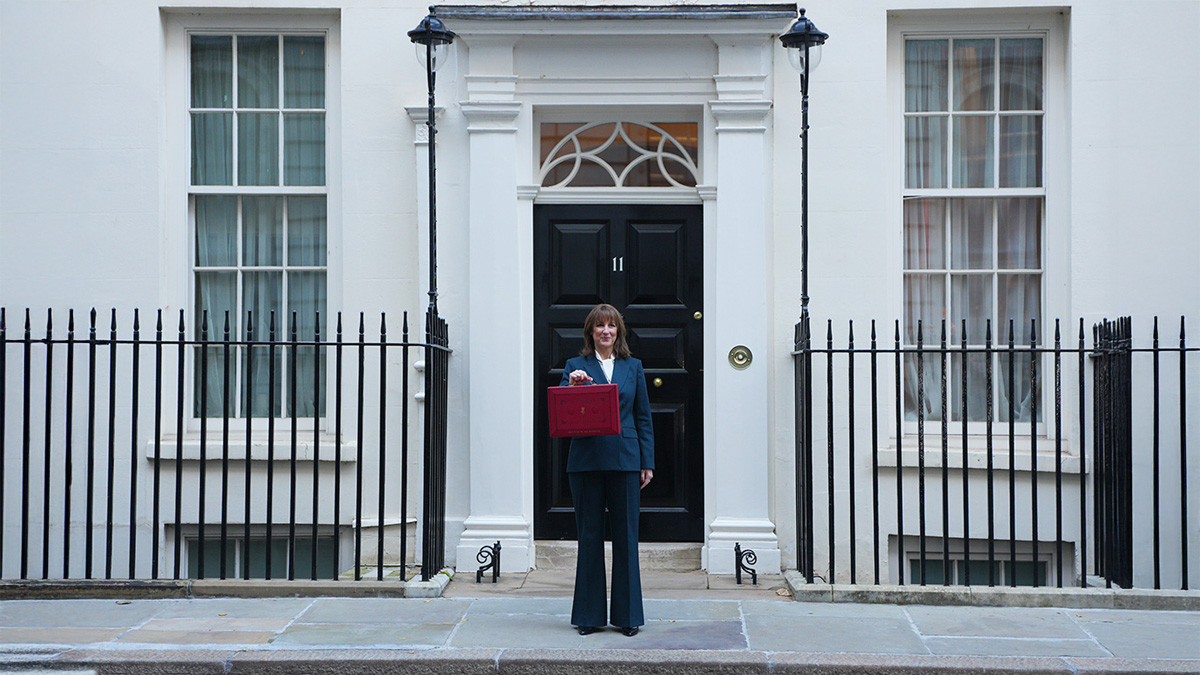
Dan Dunn is a member of Business Leader. Our aim is to help mid-size CEOs and founders fast-forward their growth through peer-to-peer networking, events and content. Click here if you’re interested in hearing more.
Dan Dunn is a firm believer in the power of paper promotion, even in a screen-addicted, digital age. Dunn and his co-founder Steve Kinder believe that marketers have a blind spot when it comes to direct mail, those promotional letters and leaflets that land, with a clatter and a thud, on our doormats.
The entrepreneurs behind Paperplanes believe that e-commerce marketers need to wake up to the power of modern, data-driven and digitally informed direct mail. They set up their company to prove it Last year, Paperplanes was responsible for more than 2.4 million pieces of mail and its clients have included companies as diverse as Biscuiteers, Gousto, Good Housekeeping and the National Basketball Association. But it wasn’t the future that Dunn, now chief executive, imagined for himself when he entered the workforce as a graduate in the late 2000s.
An education from Tesco
Dunn immersed himself in the power of customer data at the start of his career. His first job when he left university in 2009 was working for Dunnhumby, which handled Tesco’s Clubcard loyalty scheme and was co-founded by Edwina Dunn (no relation). Excited by the rise of Facebook and Google and keen to explore the power of data-driven marketing, Dunn was originally disappointed to be set to work on Tesco’s postal marketing campaign for the Clubcard statement.

“It was a naive view,” says Dunn, “because working with Tesco showed me if you can drive data into direct mail, you will stand out on the doorstep. If it’s personalised and relevant, it will result in action.” That action was easy to spot thanks to Clubcard data. Around 17 million people were using the cards and it was possible to track the transactions of nearly three-quarters of those members in stores.
The data proved that customer calls to action, triggered by direct mail, worked, says Dunn. Data allowed them to test all kinds of ideas. What was the relative impact of “spend-threshold coupons” versus a simple voucher on a specific product, perhaps a treat such as a Ben & Jerry’s ice cream? Would a customer in a certain income bracket be tempted by something in the more expensive Finest range? What kinds of imagery in the mail itself were more effective at prompting action — family-friendly or product-focused?
Dunn’s work on the Clubcard opened his eyes to the power of direct mail informed by data. It also gave him ideas on how he could do more with it if it became a dedicated service for businesses.
The reluctant entrepreneurs
In 2016 Dunn joined a print production company specialising in direct mail called Go Inspire. It was here that Dunn and Kinder started Paperplanes. The chief executive backed their idea and gave them the chance to try it out internally as a small department with its own budget, like an employee incubator programme.
This gave Dunn and Kinder the security of a regular pay cheque. But it reached a “crossroads”, says Dunn, when it became clear the fledgling start-up would have to be spun out if it was to progress. That meant Dunn and Kinder would take the intellectual property and assets and go it alone.
“I completely lost my mind,” confesses Dunn, on his decision to take the entrepreneur’s path in his early 30s. “We had a decision to make because we didn’t see ourselves as entrepreneurs at that stage. My first child was born three months before that; it was a big decision. But my wife said, ‘If you don’t give it a go, you’re always going to moan about the fact you never tried it!’”
The launch date was April 2019.
Launching Paperplanes
Dunn and Kinder started Paperplanes believing they had the ability to help many companies with the lessons learnt working with Tesco. In the intervening years, e-commerce had taken off, so that almost every company had rich digital data about customers gleaned from their websites. But direct paper mail remained almost forgotten, mentally consigned to a bygone, pre-internet era.
Their idea was to take modern digital analytics and apply this to paper in the post, to target people more effectively. “We wanted to take the best aspects of data-driven marketing and apply it to direct mail,” says Dunn. “We believed that e-commerce businesses should have direct mail as part of their mix.”
In the past, direct mail was about volume and scale with a rock-bottom postage price, says Dunn. This “bulk” approach meant mailshots were not personally tailored. The Paperplanes approach was (and remains) very different. It sends out far fewer printed letters, but it targets customers based on online behaviour, which it gathers in a digital dashboard called “In Flight”.

The platform builds a specific customer profile by asking questions such as, “what kind of items have they put in their online basket before, but not checked out?” This can be compared to what other customers with similar profiles have bought, which might trigger a specific promotion. “What we’re aiming for is personalisation at scale,” says Dunn.
Email saturation
Fast forward to 2024 and Dunn and his team see new opportunities for direct mail. Customers’ email inboxes have become “saturated” with digital marketing, says Dunn. People receive 10 times as many marketing emails today as they did in 2016, he says, and response rates have fallen as people get “email fatigue”.
At the same time, direct mail has some competitive advantages over digital channels. For email, phone calls or SMS, there is a statutory requirement for customers to “opt-in” for permission to be contacted. “Direct mail is still an opt-out channel, according to the ICO [Information Commissioner’s Office] regulations,” says Dunn, giving marketers more flexibility.
Secondly, there is a general movement against activities such as online tracking, making it harder for businesses to establish individuals’ digital habits. Let’s not forget either that some people simply choose to live quite happily offline. Digital marketers call them “the unreachables”, because you can’t email them if they don’t have an account. But still, they do have a doormat that savvy businesses can land on.
Dan Dunn is a member of Business Leader. Our aim is to help mid-size CEOs and founders fast-forward their growth through peer-to-peer networking, events and content. Click here if you’re interested in hearing more.
Related and recommended

Healthcare and income tax require radical reform, but the Budget revealed little ambition to tackle the big issues

Bob Skinstad’s journey from rugby prodigy to business leader is shaped by scrutiny, setbacks and second chances

After a decade as editor-in-chief, Katharine Viner is using her business acumen to reinvent The Guardian

The prime minister and chancellor may be safe for now but Cabinet ministers believe it’s a case of when, not if, they fall

